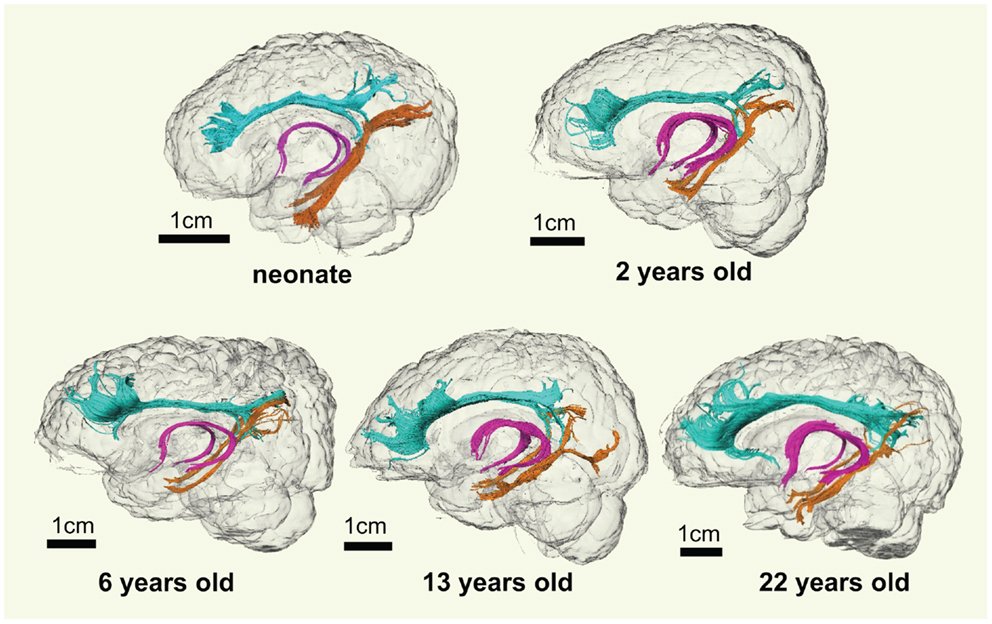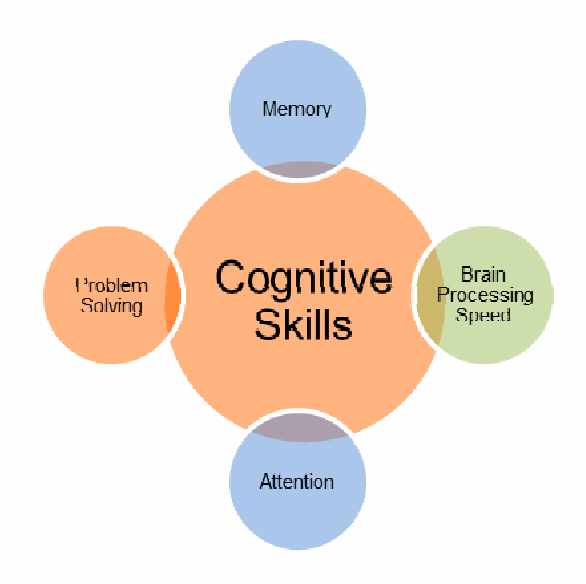- What is the CAT4 Exam in the UAE?
- What Factors Should You Consider When Choosing a School in the UAE?
- CAT4 Use in the Emirates
- What is the CAT4 (Cognitive Abilities Test) and why is it used by UAE schools as part of their admission process?
- What Areas Does CAT4 Assess in the UAE?
- How is the CAT4 test conducted in the UAE?
- Entrance Tests other than the CAT4 used by Schools in the UAE
- What curriculum do schools in Dubai and Abu Dhabi Offer?
- Should I send my child to an American or British curriculum?
- What documents are mandatory for admission into a UAE school?
- Where can I find online ratings of schools in the UAE?
- Does the School’s fee fit your budget?
Do you live in the UAE? Are you planning to get your child admitted into a school in UAE and worried about the CAT4 school entrance exam? Unclear what cognitive skills are? Try a CAT4 practice test by clicking here now.
The U.A.E has the second-highest number of international schools in the world – a staggering count of 624 according to a report by Khaleej Times. The UAE Vision 2021 National Agenda aims to develop a first-rate education system using up-to-date systems and teaching methods. Using smart technology and devices for teaching, learning and research, not only is the UAE trying to educate its own people but also set the standard globally.
If you are confused about the entrance process in UAE schools, this guide will help by explaining all about UAE school curriculums, fees, admission processes, and CAT4 test requirements. All the Emirates including Dubai, Abu Dhabi, and Sharjah have a similar approach to school entrance and this guide will help you navigate your way through.

What is the CAT4 Exam in the UAE?
The CAT4 exam (Cognitive Abilities Test) is a widely used assessment in the UAE to evaluate students’ academic potential and cognitive abilities. Designed to measure skills like reasoning, logic, focus, and attention to detail, the CAT4 test helps schools identify strengths and areas for improvement. Prepare for the CAT4 exam with practice tests and solutions and boost your child’s confidence and performance with tailored resources for UAE students. Start practicing today!
What Factors Should You Consider When Choosing a School in the UAE?
Finding the best school for your child is all about finding answers to some simple questions like:
- What kinds of entrance exams does your child need to pass for admission into international schools? (e.g CAT4, MAP, ISEE, etc.
- Which curriculum does the school follow?
- What documentation is required for admission?
- What do the KHDA and ADEK ratings say about the school?
- Does the school’s fee fit your budget?
Across all UAE emirates, the CAT4 test plays a vital role in shaping educational strategies and supporting student development. Whether in Abu Dhabi, Dubai, or Fujairah, parents and schools are prioritizing CAT4 preparation to help students unlock their full academic potential.
CAT4 Use in the Emirates
Here are a list schools in the different Emirates of the UAE that use the CAT4. Schools may update their admissions policies, so always check the latest requirements on their websites or contact their admissions offices directly.
1. Abu Dhabi
In Abu Dhabi, the CAT4 test is widely used in both public and private schools to assess students’ cognitive abilities and academic potential. Schools in Abu Dhabi often rely on CAT4 results to identify gifted students and tailor educational programs to meet individual learning needs. Many parents seek CAT4 practice tests to help their children prepare for this critical assessment.
| School Name | Curriculum | Notes |
|---|---|---|
| The British School Al Khubairat | British | CAT4 is used for Year 7 admissions. |
| Cranleigh Abu Dhabi | British | CAT4 is used for secondary school admissions. |
| Brighton College Abu Dhabi | British | CAT4 is used for Year 7 admissions. |
| Raha International School | IB (International Baccalaureate) | CAT4 is used for secondary school admissions. |
| American Community School of Abu Dhabi | American | CAT4 may be used for placement in certain grades. |
| GEMS American Academy Abu Dhabi | American | CAT4 may be used for placement in certain grades. |
| Al Muna Academy | British | CAT4 is used for Year 7 admissions. |
| Abu Dhabi International School | American | CAT4 may be used for placement in certain grades. |
| Rydal Penrhos Abu Dhabi | British | CAT4 is used for Year 7 admissions. |
| International Community School Abu Dhabi | British | CAT4 is used for secondary school admissions. |
2. Dubai
Dubai’s competitive educational landscape makes the CAT4 test a key tool for schools to evaluate students’ reasoning, logic, and problem-solving skills. International schools in Dubai frequently administer the CAT4 exam to benchmark student performance and guide curriculum planning. CAT4 preparation resources are in high demand, with many parents enrolling their children in practice programs.
| School Name | Curriculum | Notes |
|---|---|---|
| Dubai College | British | CAT4 is used for Year 7 admissions. |
| Jumeirah English Speaking School (JESS) | British | CAT4 is used for Year 7 and Year 8 admissions. |
| Kings’ School Dubai | British | CAT4 is used for secondary school admissions. |
| GEMS Wellington International School | British | CAT4 is used for Year 7 and above. |
| Dubai British School | British | CAT4 is used for secondary school admissions. |
| Nord Anglia International School Dubai | British | CAT4 is used for Year 7 and above. |
| Repton School Dubai | British | CAT4 is used for Year 7 admissions. |
| GEMS Dubai American Academy | American | CAT4 may be used for placement in certain grades. |
| The English College Dubai | British | CAT4 is used for secondary school admissions. |
| Raffles World Academy | IB (International Baccalaureate) | CAT4 is used for admissions in certain grades. |
| Swiss International Scientific School Dubai (SISD) | IB (International Baccalaureate) | CAT4 is used for secondary school admissions. |
| GEMS Metropole School | British | CAT4 is used for Year 7 and above. |
| Brighton College Dubai | British | CAT4 is used for Year 7 admissions. |
| Dwight School Dubai | IB (International Baccalaureate) | CAT4 is used for admissions in certain grades. |
| GEMS World Academy Dubai | IB (International Baccalaureate) | CAT4 is used for secondary school admissions. |
3. Sharjah
In Sharjah, the CAT4 test is commonly used by schools to gain insights into students’ cognitive strengths and weaknesses. Sharjah’s focus on balanced education means the CAT4 results are often used to support personalized learning plans. Parents in Sharjah are increasingly investing in CAT4 practice materials to ensure their children perform well in this assessment.
| School Name | Curriculum | Notes |
|---|---|---|
| Sharjah English School | British | CAT4 is used for Year 7 admissions. |
| American School of Creative Science | American | CAT4 may be used for placement in certain grades. |
| GEMS World Academy Sharjah | IB (International Baccalaureate) | CAT4 is used for secondary school admissions. |
| Sharjah American International School | American | CAT4 may be used for placement in certain grades. |
| International School of Creative Science | British | CAT4 is used for Year 7 admissions. |
| Sharjah Indian School | CBSE (Indian) | CAT4 may be used for placement in certain grades. |
| Al Ameer English School | British | CAT4 is used for secondary school admissions. |
| Sharjah Modern School | CBSE (Indian) | CAT4 may be used for placement in certain grades. |
| Sharjah Private School | American | CAT4 may be used for placement in certain grades. |
| Sharjah International School | British | CAT4 is used for Year 7 admissions. |
4. Ajman
Schools in Ajman use the CAT4 test to assess students’ academic potential and cognitive abilities. The test helps educators identify areas where students may need additional support or enrichment. With a growing emphasis on academic excellence, many parents in Ajman are turning to CAT4 practice tests to help their children excel.
| School Name | Curriculum | Notes |
|---|---|---|
| GEMS Ajman Academy | British | CAT4 is used for Year 7 admissions. |
| International Academic School Ajman | British | CAT4 is used for secondary school admissions. |
| Ajman Academy | IB (International Baccalaureate) | CAT4 is used for secondary school admissions. |
| Ajman Indian School | CBSE (Indian) | CAT4 may be used for placement in certain grades. |
| Al Mawakeb School Ajman | American | CAT4 may be used for placement in certain grades. |
| City School Ajman | British | CAT4 is used for Year 7 admissions. |
| Ajman School | British | CAT4 is used for secondary school admissions. |
| Al Mizhar American Academy | American | CAT4 may be used for placement in certain grades. |
| Ajman Modern School | CBSE (Indian) | CAT4 may be used for placement in certain grades. |
| Ajman International School | British | CAT4 is used for Year 7 admissions. |
5. Umm Al Quwain
In Umm Al Quwain, the CAT4 test is gaining popularity as a tool for evaluating students’ reasoning and problem-solving skills. Schools use the results to create targeted learning strategies. Parents in Umm Al Quwain are increasingly aware of the importance of CAT4 preparation and are seeking resources to help their children succeed.
| School Name | Curriculum | Notes |
|---|---|---|
| Umm Al Quwain Indian School | CBSE (Indian) | CAT4 may be used for placement in certain grades. |
| Umm Al Quwain Academy | British | CAT4 is used for Year 7 admissions. |
| Umm Al Quwain International School | British | CAT4 is used for secondary school admissions. |
| Umm Al Quwain Modern School | CBSE (Indian) | CAT4 may be used for placement in certain grades. |
| Umm Al Quwain American School | American | CAT4 may be used for placement in certain grades. |
| Umm Al Quwain British School | British | CAT4 is used for Year 7 admissions. |
| Umm Al Quwain Islamic School | Ministry of Education (UAE) | CAT4 may be used for placement in certain grades. |
| Umm Al Quwain Private School | British | CAT4 is used for secondary school admissions. |
| Umm Al Quwain International Academy | IB (International Baccalaureate) | CAT4 is used for secondary school admissions. |
| Umm Al Quwain School of Excellence | CBSE (Indian) | CAT4 may be used for placement in certain grades. |
6. Ras Al Khaimah
Ras Al Khaimah’s schools use the CAT4 test to measure students’ cognitive abilities and academic potential. The test is particularly valued for its ability to provide a comprehensive understanding of a student’s strengths and areas for improvement. CAT4 practice tests are becoming a key resource for families in Ras Al Khaimah aiming for academic success.
| School Name | Curriculum | Notes |
|---|---|---|
| Ras Al Khaimah Academy | British | CAT4 is used for Year 7 admissions. |
| GEMS Modern Academy Ras Al Khaimah | CBSE (Indian) | CAT4 may be used for placement in certain grades. |
| Al Mawakeb School Ras Al Khaimah | American | CAT4 may be used for placement in certain grades. |
| Ras Al Khaimah International School | British | CAT4 is used for secondary school admissions. |
| Ras Al Khaimah American Academy | American | CAT4 may be used for placement in certain grades. |
| Ras Al Khaimah Schools | British | CAT4 is used for Year 7 admissions. |
| Al Mizhar American Academy Ras Al Khaimah | American | CAT4 may be used for placement in certain grades. |
| Ras Al Khaimah Indian School | CBSE (Indian) | CAT4 may be used for placement in certain grades. |
| Ras Al Khaimah Modern School | CBSE (Indian) | CAT4 may be used for placement in certain grades. |
| Ras Al Khaimah International School | British | CAT4 is used for secondary school admissions. |
7. Fujairah
In Fujairah, the CAT4 test is used by schools to assess students’ reasoning, logic, and problem-solving skills. The results help educators design personalized learning plans to support student growth. Parents in Fujairah are increasingly focusing on CAT4 preparation to ensure their children are well-prepared for this important assessment.
| School Name | Curriculum | Notes |
|---|---|---|
| Dibba English School | British | CAT4 is used for Year 7 admissions. |
| Fujairah Academy | British | CAT4 is used for secondary school admissions. |
| International Community School Fujairah | British | CAT4 is used for Year 7 admissions. |
| Fujairah Modern School | CBSE (Indian) | CAT4 may be used for placement in certain grades. |
| Al Mawakeb School Fujairah | American | CAT4 may be used for placement in certain grades. |
| Fujairah Private School | British | CAT4 is used for Year 7 admissions. |
| Fujairah Islamic School | Ministry of Education (UAE) | CAT4 may be used for placement in certain grades. |
| Fujairah Indian School | CBSE (Indian) | CAT4 may be used for placement in certain grades. |
| Fujairah City School | British | CAT4 is used for secondary school admissions. |
| Fujairah International School | British | CAT4 is used for Year 7 admissions. |
What is the CAT4 (Cognitive Abilities Test) and why is it used by UAE schools as part of their admission process?
Like many schools across the UK and Ireland, a large number of international schools in the UAE also use the Cognitive Abilities Test (CAT4) to select candidates for admission. CAT4 is one of the most popular tests used by schools in the UAE as not just part of the admission process but also as part of predicting a child’s future performance in Year 8.
Developed by (GL) Assessment, CAT4 provides a comprehensive report on the cognitive and reasoning capabilities of a child and is an excellent predictor of a child’s future academic achievement. The test evaluates and provides scores for the exact strengths and weaknesses of each candidate. CAT4 tests in Dubai and Abu Dhabi work as an excellent tool for schools to filter out students during the admission process and are also used to identify children with extraordinary talents. In the UAE it is also at times used as a basis to award scholarships.
What Areas Does CAT4 Assess in the UAE?
The CAT4 reports on how well a student performs across four defined dimensions, which include:
- Verbal Reasoning: The assessment involves traditional examining techniques and evaluates the subject’s verbal skills through the expression of ideas and thoughts in words.
- Non-Verbal Reasoning: Used to judge the ability of a candidate to connect different shapes and understand the underlying pattern with the help of images and diagrams.
- Spatial Reasoning: It measures the ability of a student to think and draw conclusions in three-dimensional space by manipulating shapes and objects.
- Quantitative Reasoning: Questions on quantitative reasoning appraise more than just general mathematical skills. It focuses on analyzing the candidate’s ability to think fast through numerical problems and work out relationships in a sequence of numbers.
How is the CAT4 test conducted in the UAE?
The assessment can be either paper-based or computerized and is carried out in the form of a series of MCQ-styled questions and follows the standard approach as prescribed by GL Assessment.
CAT4 will test your child in several different ways and will consist of questions in various formats such as:
- Verbal and Numerical Analogies, and Figure Matrices, all of which involve questions that deal with pattern recognition.
- Verbal and Numerical Classification where students have to work out a relationship between several images in question. Then, they identify which of the given options carries the same relationship.
- Numerical Series questions ask to figure out the connection between a given series of numbers. The student then has to select the correct option which shows the same connection.
- Figure Recognition shows a specific shape that is hidden in only one of the given multiple choices. Students have to identify which option is the right.
- Figure Analysis helps to determine whether a candidate has strong visualization skills. These questions require children to recognize the correct orientation of a given object or shape in the three-dimensions.
With such a wide testing approach, CAT4 assessments are great at pinpointing the strengths and weaknesses of a potential student in the UAE.
Entrance Tests other than the CAT4 used by Schools in the UAE
Apart from CAT4, various schools in Dubai or Abi Dhabi also conduct other tests according to their admission requirements. Some of the more popular entrance tests are described below:
1. Independent School Entrance Examination (ISEE)
Independent School Entrance Examination is a test used by several private schools in Dubai and Abu Dhabi. Scoring well in this test is a prerequisite for your child to get into the top private school of your choice. The ISEE tests the child across a wide range of abilities, including verbal skills, quantitative reasoning, mathematical, reading, and writing skills.
2. The measure of Academic Progress (MAP)

MAP is a kind of entrance test that involves testing the reading ability, science, and math skills of a student. These tests are usually available in computerized form. The great thing about MAP tests is that they are customized to the student’s current level of knowledge and education. This way, every candidate gets a fair chance to prove their knowledge and the school can be sure the child has covered the material and meets a minimum academic standard. The drawback is that this is focused primarily on knowledge rather than the cognitive ability of a student to learn.
3. Children’s Progress Academic Assessment (CPAA)
Is a standardized test that lets teachers evaluate your child and provides a very thorough analysis of where your child performed well and where there is room for improvement. It is a good idea to thoroughly review the works from previous years since subject knowledge is critical in passing these tests.
What curriculum do schools in Dubai and Abu Dhabi Offer?
Before you enroll your child in an international school, it’s important to figure out what curriculum you want your child to study. This depends on several factors such as:
- Whether or not your child will stay in UAE for higher education. Especially relevant if you are an expatriate and plan to move back to your home country after a few years.
- If another international curriculum will cover the same subjects as the curriculum of your home country.
International Baccalaureate (IB) schools are generally a good choice for those who come from countries which don’t follow a UK type curriculum with GCSE and A-Level assessments. The IB is easy to transfer and offers great flexibility and provides your child with the skills to switch at during later stages.
Should I send my child to an American or British curriculum?
There’s a huge number of both American and British international curricula offered in UAE schools. The American schools predominantly copy a U.S based education pattern accompanied by a credit scoring system, which is conveniently transferable. Their curriculum is much similar to what any IB school would offer. On the other hand, British schools are highly valued by expats who are interested in pursuing higher education in world-renowned UK-based educational institutes. However, at the end of the day, the decision boils down to where you plan to send your child to attend university.
What documents are mandatory for admission into a UAE school?
The specific admission requirements will be different for different schools. However, there are some basic documentation requirements you have to provide to get your child enrolled in any school in Dubai or Abu Dhabi:
- The school’s admission form
- Previous school records (if any)
- Proof of identification for the child and both parents
- Vaccination records
- The birth certificate of your child
- You will also have to submit a non-refundable admission fee when you get your child registered with the school.
Where can I find online ratings of schools in the UAE?
If you live in Dubai, then you must check the KHDA ratings for international schools in your area. The Knowledge and Human Development Authority or KHDA is a regulatory body that oversees matters related to the private education sector in Dubai. Their website rates schools against specific criteria and reports on where these schools rank on their list. KHDA’s rankings are made up of five levels starting at the top with ‘Outstanding, Very Good, Good, Acceptable’, and ending at the bottom with ‘Weak’. The criteria for KHDA ratings are a mix of many important factors, such as the school’s leadership capabilities, the student’s academic performance, quality of progress tracking systems, and reporting on results.
However, if you reside in Abu Dhabi, you can use the Abu Dhabi Department of Education and Knowledge (ADEK) as your go-to website for school searching. This department was recently formed, following in the footsteps of KHDA, and provides the same type of services to the public. Hence, the KHDA and ADEK websites are trustworthy sources to provide you with the exact information you need for your child’s school admission.
Does the School’s fee fit your budget?
Apart from determining ratings, the KHDA and ADEK platforms are also great sources for finding international schools that match your fee criteria. It’s no secret that International Baccalaureate schools are amongst the countries most expensive. These are then followed by American and British schools which have only marginally cheaper fees.
The school fees in Dubai start from as low as 1,800 AED and go up to a whopping 120,000 AED per annum.
However, one thing you should keep in mind is that the higher fees are generally indicative of a higher quality of education and the curriculum these schools follow. Of course there is a point at which the extra money in fees does not translate to better learning. There are good international schools in the UAE that are affordable and may be covered within your education allowances provided by your employer.
You can use the online international school database to determine which schools in your area you can afford. By entering your the site will find schools in your area within your budget – but as a caveat the list on this site is not comprehensive and its worth asking friends, families, and posting on expatriate websites for advice. Feel free to contact us if you still have any queries about the school system in the UAE, the admission process, and specifically the CAT4 school entrance exam for schools in the UAE. We will be happy to help.
Try a CAT4 practice test by clicking below:
CAT4 PRACTICE TEST






